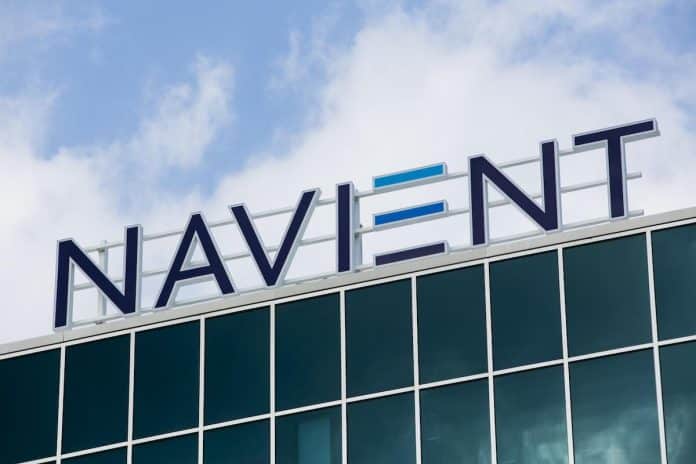Want to Make Extra Money Now?
|
Navient, formerly part of Sallie Mae, is facing six lawsuits alleging illegally cheating borrowers out of repayment rights through shortcuts and deception. The formal Navient Lawsuit against Navient can be seen here.
Navient is a U.S. corporation based in Wilmington, Delaware, whose operations include servicing and collecting on student loans. Managing nearly $300 billion in student loans for more than 12 million debtors, the company was formed in 2014 by the split of Sallie Mae into two distinct entities, Sallie Mae Bank and Navient.
Navient employs 6,000 individuals at offices across the U.S. As of 2018, Navient services 25% of student loans in the United States (Wikipedia).
Student loans make up the nation’s second-largest consumer debt market. Today there are more than 44 million federal and private student loan borrowers and collectively these consumers owe roughly $1.4 trillion.
The U.S. Consumer Financial Protection Bureau and the Illinois and Washington attorneys general sued Navient in January 2017. Pennsylvania’s attorney general filed a suit in October 2017. The California and Mississippi attorneys general filed suits in June and July 2018, respectively. They are suing, Navient, formerly part of Sallie Mae, for creating obstacles to repayment by providing bad information, processing payments incorrectly, and failing to act when borrowers complained.
Through shortcuts and deception, the company also illegally cheated many struggling borrowers out of their rights to lower repayments, which caused them to pay much more than they had to for their loans. The Bureau seeks to recover significant relief for the borrowers harmed by these illegal servicing failures (CFPB).
In this Navient lawsuit, they are alleged of the following mispractice:
- Failing to correctly apply or allocate borrower payments to their accounts.
- Steered struggling borrowers toward paying more than they have to on loans.
- Obscured information consumers needed to maintain their lower payments.
- Deceived private student loan borrowers about requirements to release their co-signer from the loan.
- Harmed the credit of disabled borrowers, including severely injured veterans.
The Consumer Financial Protection Bureau also alleges that Navient, through its subsidiary Pioneer, made illegal misrepresentations relating to the federal loan rehabilitation program available to defaulted borrowers. Pioneer misrepresented the effect of completing the federal loan rehabilitation program by falsely stating or implying that doing so would remove all adverse information about the defaulted loan from the borrower’s credit report. Pioneer also misrepresented the collection fees that would be forgiven upon completion of the program.
Navient has previously stated that these allegations are unfounded according to a statement made on their website. However, on Jan. 13, 2022, Navient announced a resolution of legal matters with several states. Learn more from its News Release and FAQs
Answers about the Jan. 13, 2022 announcement:
Whose loans will be canceled under this agreement?
The agreement includes loan cancelation for approximately 66,000 borrowers who took out certain private student loans, largely between 2002 and 2010, and who subsequently defaulted and met other criteria. The vast majority of recipients borrowed prior to 2010 to attend certain for-profit schools, such as Corinthian and ITT, which closed years later once the federal government stopped lending at these schools.
How will I know if my loans will be impacted?
Once court approval is received, Navient will notify the specific borrowers and co-borrowers whose private education loans will be canceled. Borrowers and co-borrowers do not need to take any action.
How will the state attorneys general Consumer Fund work?
Some states are planning to provide payments directly to certain borrowers through a separate Consumer Fund, as determined entirely by the states. According to the states, approximately 350,000 people will receive approximately $260 each through this fund. The states will choose who will receive these funds, using criteria they have determined. Borrowers do not need to take any action. The administrator hired by the states will send a postcard to each federal loan borrower eligible for a payment, using the most current address on file with the U.S. Department of Education.
Eligibility for a payment from the Consumer Fund is not affected by the transfer of servicing to Aidvantage. Not all federal student loan borrowers will be eligible but those who are will be notified by the administrator hired by the states.
Are there other options if I don’t qualify for help through this agreement but am struggling to make my payments?
Yes, there could be options. Federal student loans offer income-driven repayment, Public Service Loan Forgiveness, or other repayment plans. Private education loans also may have options. Student loan borrowers should contact their servicer to discuss.
We're committed to providing you the best service possible as you continue down the path of loan repayment, and do not expect these legal matters to impact our ability to serve you in any way.
According to the Navient website, if Navient services one or more of your student loans, the agreement includes loan cancelation for approximately 66,000 borrowers who took out certain private student loans, largely between 2002 and 2010, and who subsequently defaulted and met other criteria. The vast majority of recipients borrowed prior to 2010 to attend certain for-profit schools, such as Corinthian and ITT, which closed years later once the federal government stopped lending at these schools.
